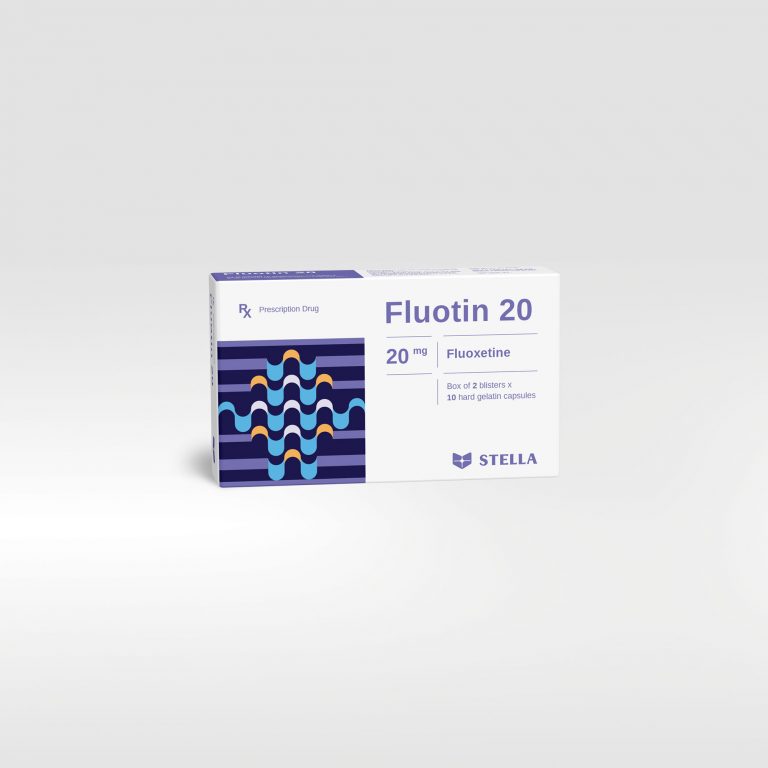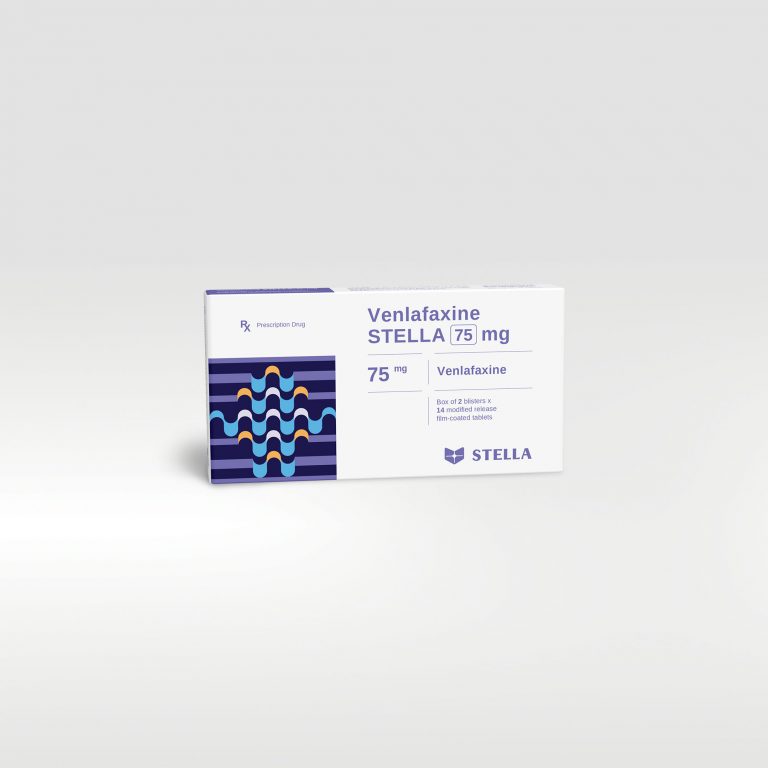Citalopram STELLA 20 mg Rx
Citalopram STELLA 20 mg contains citalopram that is an antidepressant with a strong and selective inhibitory action on the uptake of 5-hydroxytryptamine (5-HT, serotonin).
| Pack size | Box of 30 tablets |
| Shelf-life | 36 months |
| Composition | Citalopram |
| Dosage forms and strengths | Film-coated tablet: 20 mg |
Product code :









